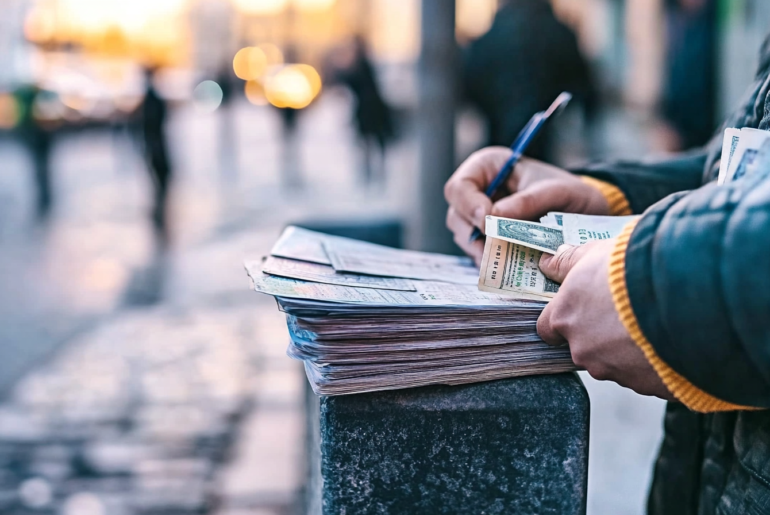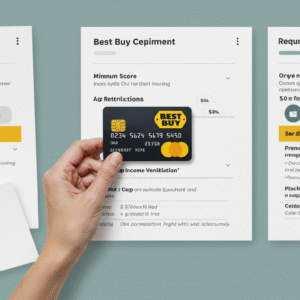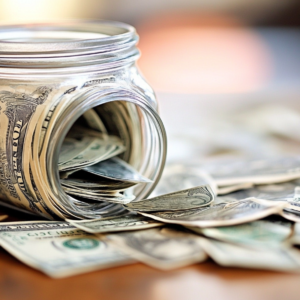This article may contain references to products or services from one or more of our advertisers or partners. We may receive compensation when you click on links to those products or services. Nonetheless, our opinions are our own.
The information presented in this article is accurate to the best of our knowledge at the time of publication. However, information is subject to change, and no guarantees are made about the continued accuracy or completeness of this content after its publication date.
It is important to know the basics of finance. A demand deposit is an important idea. This kind of deposit is very important in today’s banking. A demand deposit is a type of bank or credit union account. You can take out money whenever you want without telling them first. A checking account is the most common type of demand deposit.
- Understanding Demand Deposits
- The Nature of Demand Deposits
- Features of Demand Deposits
- Preparing for Your First Demand Deposit Account
- What You Need to Get Started
- Choosing the Right Bank for Your Needs
- Managing Your Demand Deposit Account Effectively
- Monitoring Your Account Regularly
- Maximizing the Benefits of Your Account
- Conclusion
- Frequently Asked Questions
- Recommended Reads
Understanding Demand Deposits
Demand deposits are money in a bank that you can get out whenever you want. They are easy to use and make up a large part of a country’s money supply.
You can think of demand deposits as cash in your pocket. You can use them whenever you want. Their flexibility makes them great for managing your money every day.
The Nature of Demand Deposits
Demand deposits are very important to the economy. They make it easy for people and businesses to do business with each other. It helps trade and economic activity when it is easy to get these funds.
The bank uses some of the money you put in a demand deposit account to lend to other people and businesses. This system helps keep the economy going by moving money around. It also lets banks make money by lending.
Features of Demand Deposits
Demand deposits offer many benefits. They are easy to get to and have very low risk. However, their interest rates are usually lower than those of time deposits. Here are some main features:
- High Liquidity: You can withdraw your money anytime, which is great for everyday expenses.
- Ease of Access: You can use ATMs, checks, debit cards, and online banking to obtain your money.
- Low Risk: Your deposits are secure and protected by the FDIC for banks or the NCUA for credit unions.
Preparing for Your First Demand Deposit Account
It’s easy to open a demand deposit account, but you need to be ready. First, check out a few banks. Look at their fees, features, and interest rates side by side. Think about how easy it is to use online banking and how helpful their customer service is.
Once you’ve picked a bank or credit union, get the paperwork you need to open the account quickly.
Voted "Best Overall Budgeting App" by Forbes and WSJ
Monarch Money helps you budget, track spending, set goals, and plan your financial future—all in one app.
Get 50% OFF your first year with code MONARCHVIP
What You Need to Get Started
Prior to visiting a bank or financial institution, please ensure you have the appropriate documentation.
- Government-Issued ID: A driver’s license, passport, or state ID.
- Social Security Number: A Social Security card or a document showing your SSN.
- Proof of Address: A recent bill, rental agreement, or bank statement.
Having these documents will help accelerate the opening process.
Choosing the Right Bank for Your Needs
It’s important to pick the right bank so you can manage your money well. Think about how easy it is to use, how helpful the staff is, and the different online banking options available.
Choose what is most important to you. Do you want the best interest rates, a lot of ATMs, or more banking services? Check out a few different checking accounts. Please check their fees, interest rates, and minimum balance requirements. This lets you choose the account that works best for you.
Step-by-Step Guide to Setting Up a Demand Deposit Bank Book
Opening a demand deposit account is easy. You can typically do it online or in person. Just follow these steps:
Step 1: Gather Necessary Documentation
To make sure the application process goes well, have these documents set:
| Document | Description |
|---|---|
| Valid Government-Issued ID | Driver’s License, State ID, or Passport |
| Social Security Card | Your Social Security card or relevant document |
| Proof of Address | Utility bill, bank statement, or lease agreement |
Step 2: Picking the Type of Demand Deposit Account
Banks offer several kinds of demand deposit accounts. Each one has its own special features.
- Checking Accounts: Good for daily use. You can use checks and debit cards.
- Savings Accounts: Ideal for saving money. You can earn some interest too.
- Money Market Accounts: Mix features of checking and saving. They usually offer better interest and allow a few transactions.
Pick a choice based on your needs and money goals.
Step 3: Understanding the Terms and Conditions
Before you pick your account, spend a little time reading the rules and details. Make sure to focus on:
- Fees: Monthly fees for keeping the account, going over the limit, and using ATMs.
- Interest Rates: The rates used that change based on your balance.
- Transaction Limits: Some accounts have limits on how much you can take out or move.
Knowing these details will help you steer clear of surprise fees. It will also help you get the most out of your benefits.
Managing Your Demand Deposit Account Effectively
It is important to take care of your demand deposit account once it is open. Keep a close eye on your transactions. Make sure you have enough money in your account. Be aware of any possible fees.
Learn about the account’s features, such as online banking, mobile deposits, and automatic bill payments. These features will make it easier for you to handle your money.
Monitoring Your Account Regularly
Checking your checking account often helps you handle your money better. Online and mobile banking tools let you:
- Avoid Overdraft Fees: Watching your balance helps you stop accidental overdrafts.
- Track Spending Habits: Checking your statements helps you see where you can save money.
- Meet Minimum Balance Requirements: Keeping your balance high enough helps you skip extra fees.
Maximizing the Benefits of Your Account
Find ways to get the most out of your benefits. If you keep a higher balance, you might want to look into accounts that pay more interest or give you more rewards.
Some banks give you rewards or cash back when you use your debit card. This kind of incentive helps you get the most out of your banking.
Conclusion
To be a good banker, you need to know about demand deposits. These accounts make it easy to get money, which is very helpful. You can get the most out of your bank account by picking the right bank and taking care of it. Checking your account often will help you keep track of fees and transactions, which will make your banking experience better.
If you don’t know what demand deposits are, please read the FAQs below for more information.
Frequently Asked Questions
How do demand deposits differ from time deposits?
You can get to your money right away with demand deposits. You have to wait a certain amount of time before you can take your money out of time deposits, like certificates of deposit (CDs).
Can I access my demand deposit account online?
Yes, most banks let you do your banking online. The service makes it easy for people to check their balances, move money around, and keep track of their money.
What charges are there for demand deposit accounts?
The costs depend on the school. They can include monthly fees for keeping the account open, fees for going over your limit, and charges if your balance drops below the minimum.
How can I move money from my checking bank?
You can send money by wire transfer, check, direct debit, or online banking. It all depends on what your bank can do for you.
Are demand deposit accounts insured?
In the U.S., each person can keep up to $250,000 in their demand deposit accounts. This safety is at banks and credit unions that are insured by the FDIC and NCUA. This feature protects you in case the bank or credit union goes out of business.

Reviewed and edited by Albert Fang.
See a typo or want to suggest an edit/revision to the content? Use the contact us form to provide feedback.
At FangWallet, we value editorial integrity and open collaboration in curating quality content for readers to enjoy. Much appreciated for the assist.
Did you like our article and find it insightful? We encourage sharing the article link with family and friends to benefit as well - better yet, sharing on social media. Thank you for the support! 🍉
Article Title: Demand Deposit vs. Savings Account: Which One Is Better for You?
https://fangwallet.com/2025/08/11/demand-deposit-vs-savings-account-which-one-is-better-for-you/The FangWallet Promise
FangWallet is an editorially independent resource - founded on breaking down challenging financial concepts for anyone to understand since 2014. While we adhere to editorial integrity, note that this post may contain references to products from our partners.
The FangWallet promise is always to have your best interest in mind and be transparent and honest about the financial picture.
Become an Insider

Subscribe to get a free daily budget planner printable to help get your money on track!
Make passive money the right way. No spam.
Editorial Disclaimer: The editorial content on this page is not provided by any of the companies mentioned. The opinions expressed here are the author's alone.
The content of this website is for informational purposes only and does not represent investment advice, or an offer or solicitation to buy or sell any security, investment, or product. Investors are encouraged to do their own due diligence, and, if necessary, consult professional advising before making any investment decisions. Investing involves a high degree of risk, and financial losses may occur including the potential loss of principal.
Source Citation References:
+ Inspo
There are no additional citations or references to note for this article at this time.












































